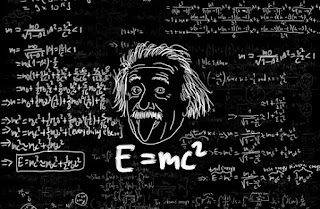Albert Einstein in an Alien Planet
Firstly, Native Americans lived in the Americas when Columbus landed there. Secondly, history books continue to say that Columbus discovered the Americas. Thirdly, the hollowness of Columbus’s claim has become more obvious today. However this claim may be contextually correct, from the viewpoint of medieval Europeans. What about claim that Albert Einstein discovered the theory of relativity? Does a contextually limitation exist here? Perhaps. an alien being from an exo-planet in our own galaxy may laugh at the claim. But Einstein’s claim is genuine and can be categorized as “Apaurusheya”.

Ancient scholars in India used the term “Apaurusheya“. This phrase refers to knowledge which can not be attributed to human intellect. Let us look at this. Firstly, the intellect of an author can create a poem or a novel. Similarly, solution to everyday problems originates from the intellect. However, human intellect merely reflects a universally applicable principle such as E = mc2. Apaurusheya is this kind of knowledge.
Universal Principles are Tattvas
Vedas contain the knowledge of the subtle. In addition, Rishis who were instrumental in the creation of the Vedas were expert meditators. They assert that Apaurusheya knowledge simply reflected in their mind as a result of these meditations. A thorough study of the mantras suggests that a majority of content in the Vedas are references to universal principles. Native commentators in the past have explained Vishnu, Shiva, Indra and the others to be Tattvas or universal principles. Then why did a confusion arise about the nature of knowledge in the Vedas?
The hesitation in accepting Vedas as “Apaurusheya” may arise because of one reason. Certainly, some mantras contain references to historical (puranas) facts. IN addition, some are hints about ritual procedures. Most readers of the Veda are unable to distinguish these two types of mantras from those about Tattvas. However, expert commentators were definite about their difference. Therefore, the commentaries of these native scholars are important. They are important because we can use them to pull out mantra sections which appear to be logic from modern science. Native commentaries have been very useful to me in writing my first two books.